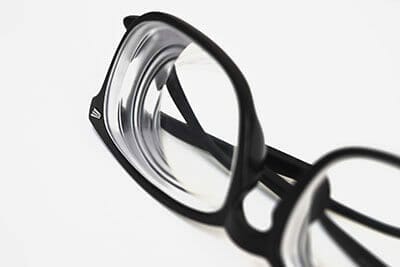Patients Suffering From Strabismus
One group of people who may benefit from prism lenses are those with a condition called strabismus, or crossed eyes. This occurs when the eyes are not properly aligned. Symptoms of strabismus include eyes that appear to point in different directions, double vision, and difficulty with depth perception. Prism lenses can help correct this issue by aligning the eyes and improving depth perception.
Patients Suffering From Diplopia
Another group of people who may benefit from prism lenses are those with a condition called diplopia, or double vision. This can occur due to a variety of causes, such as a brain injury or a muscle imbalance in the eyes. Symptoms of diplopia include seeing two images of a single object, blurry or distorted vision, and difficulty with fine motor tasks such as reading or writing. Prism lenses can help correct this by aligning the images seen by each eye and reducing the appearance of double vision.
Take our online double vision assessment to help identify if you may have an underlying vision problem that is causing diplopia (double vision).
Patients Suffering From Neurological conditions
Furthermore, people with neurological conditions such as multiple sclerosis, stroke, or traumatic brain injury may experience vision symptoms that can be aided with prism lenses. In these cases, a neuro-optometric examination may be recommended to evaluate the brain-eye connection, along with any other necessary interventions.
Additionally, prism lenses can be beneficial for a variety of individuals who have vision disorders such as difficulty with fine motor tasks, visual perception, spatial awareness, binocular vision and visual-motor coordination.
It's important to note that prism lenses are just one potential solution for these vision disorders, and our functional optometrist will work with you to determine the best course of treatment for your individual needs.
The Role of Prisms in Stroke Rehabilitation: Addressing Spatial Neglect
Prisms are a useful tool for people who have suffered a stroke and are experiencing spatial neglect. Spatial neglect is a condition in which a person loses awareness of one side of their body or space around them. This can lead to difficulties with balance, coordination, and depth perception, making it challenging to carry out everyday tasks. However, prisms can be used to address these issues. By wearing prism glasses, the perceived position of objects is shifted, and part of the person's visual field is adjusted, helping to retrain the brain to be aware of the neglected side of the body or space. Studies have shown that the use of prisms in stroke rehabilitation can lead to significant improvements in spatial awareness, balance, and mobility. Prisms can, therefore, be an effective and non-invasive way to aid stroke patients in regaining their independence and quality of life.
Prisms: An Innovative Solution for Central Vision Loss
Prisms can also be a helpful tool for individuals experiencing central vision loss. Central vision loss occurs when the macula, a small but essential part of the retina responsible for sharp, straight-ahead vision, becomes damaged. This condition can make it challenging to read, recognize faces, or perform everyday activities. However, prism glasses can be used to shift the visual field, allowing individuals to better see the objects they are looking at with their peripheral vision. By using prisms to redirect the image, individuals with central vision loss can improve their ability to see and carry out daily tasks. It is essential to consult an eye doctor or specialist to determine the appropriate prism power and placement for each individual, as the right prism prescription can significantly enhance the quality of life for those living with central vision loss.
Corneal Scarring: Improving Visual Function with Prism Lenses
Prism lenses can be a useful option for individuals who have corneal scarring. Corneal scarring can result from injury, infection, or surgery and can cause distorted or double vision. The use of prism lenses can help correct this vision problem by adjusting the way light enters the eye, improving visual acuity, and reducing visual distortion. Prism lenses can be prescribed to correct the alignment of the eyes or to alleviate double vision caused by corneal scarring. It is important to consult with an eye doctor or specialist to determine the appropriate prism power and placement for each individual, as the right prescription can significantly improve the quality of life for those with corneal scarring. With the use of prism lenses, individuals with corneal scarring can experience improved visual function and a better quality of life.
Seeing Clearly: The Top Uses of Prism Lenses in Eye Care and Vision Correction at Neuro Optometry Clinics
- To correct double vision, which is caused by a misalignment of the eyes.
- To treat convergence insufficiency, a condition where the eyes have trouble working together when focusing on nearby objects.
- To treat amblyopia, also known as "lazy eye," a condition where one eye is weaker than the other and does not develop normal vision.
- To correct vision problems following a traumatic brain injury such as a concussion, stroke.
- To correct vision problems caused by certain medical conditions such nystagmus, hemianopia, corneal scarring, multiple sclerosis, and parkinsons.
- To help people with strabismus, a condition where the eyes are not properly aligned.
- To assist people who have had cataract surgery or other eye surgeries to regain binocular vision.














